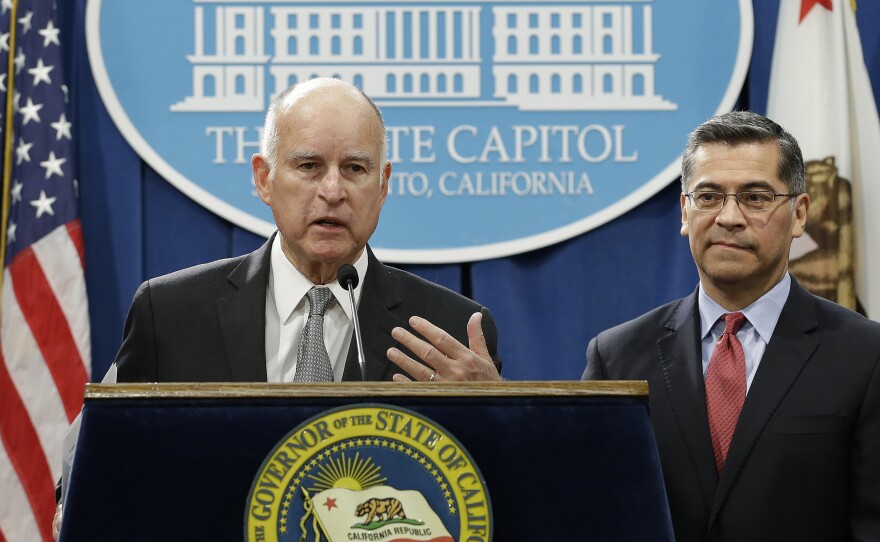California Gov. Jerry Brown releases his last state budget proposal Friday, kicking off a month of negotiations with the Legislature about how to spend a growing budget surplus.
The Democratic governor last pegged the surplus at $6.1 billion in January and proposed spending almost none of it, preferring to direct all but $300 million to reserves. Since then revenue during the busy April tax-filing season came in even higher than expected.
Brown has consistently warned that California is riding a wave of economic growth and the budgetary good times will eventually end. He's generally resisted new ongoing spending on social services that he says can't be sustained.
RELATED: Governor Brown’s Proposed Budget Has Only Modest Boost For Health Care
But he's facing pressure to boost funding on a wide variety of legislative priorities including higher education, child care and firefighting.
Assembly Democrats said Monday they'll push for a $1 billion boost in spending on health care, including $250 million to provide state-funded health coverage to low-income California residents living in the country illegally through the Medi-Cal program. Their proposal would also provide money to offset monthly premium costs for people who buy their own insurance coverage.
Assembly Democrats have also proposed expanding the earned-income tax credit to help the working poor.
Brown's opening proposal in January would have spent $131.7 billion from the general fund. By law about half of the budget is automatically directed to K-12 education and community colleges.
His January proposal would have created a new online community college that would primarily serve working adults. His administration has aggressively worked to sell lawmakers on the plan and said recently that the first curriculum would be a certificate in medical coding.
He said Thursday that his budget proposal will include $96 million for a variety of efforts to prevent wildfires, including doubling the amount of land that's actively managed through vegetation thinning, controlled burns and reforestation. California firefighters and fire chiefs have asked for $100 million for overtime, equipment and dispatchers to better prepare for potential fires during risky weather conditions.
Brown will negotiate a final spending plan with Democratic legislative leaders. The Assembly and Senate have until June 15 to pass a budget under the state Constitution. If they're late, lawmakers' pay will be docked.
Brown has presided over a stark turnaround in California's finances. The state's budget, which has historically been subject to steep highs and deep lows, has grown 45 percent since 2011, when he took office facing a $25 billion deficit thanks to significant income growth among wealthy taxpayers. Forty percent of California's personal income tax revenue comes from people earning $1 million or more per year.
Republicans say the budget growth is a sign that taxes are too high.





